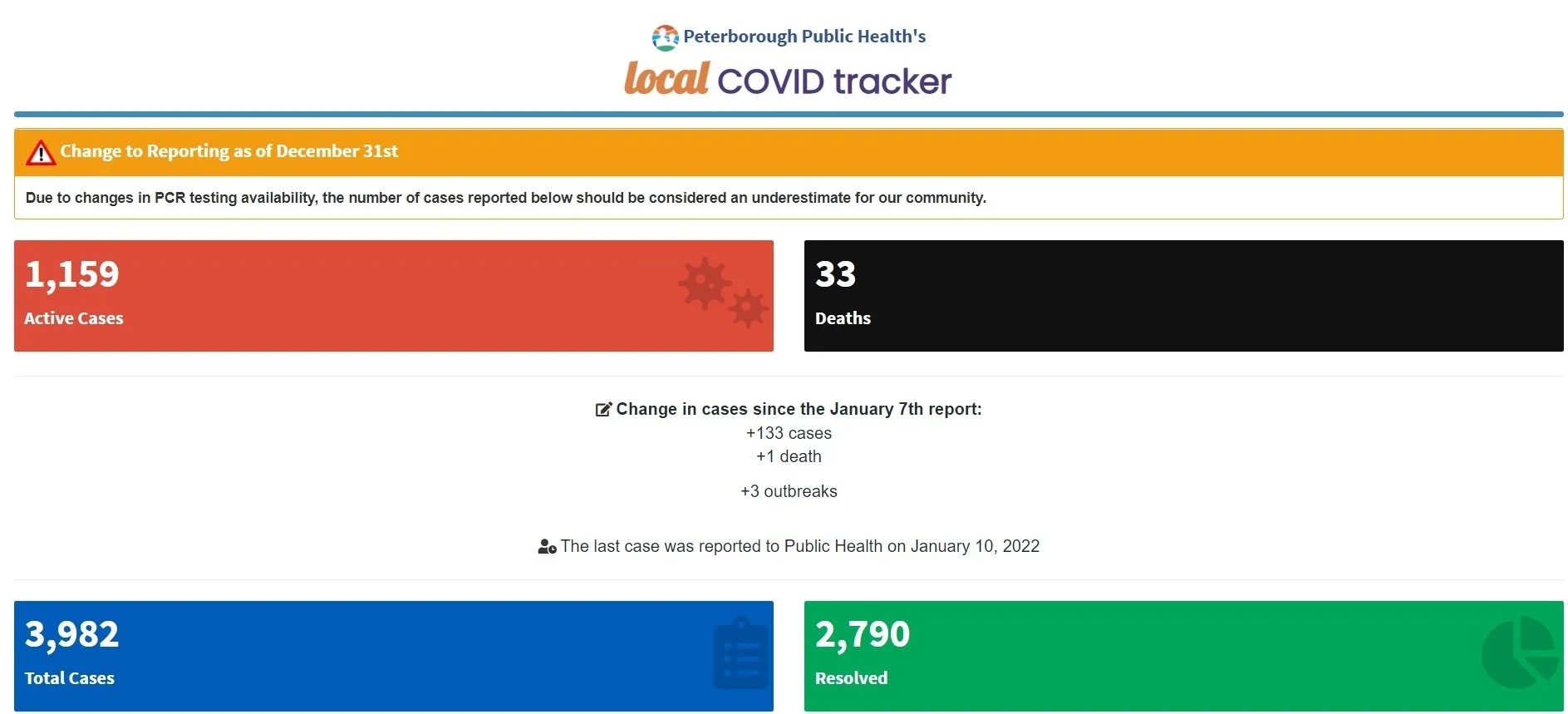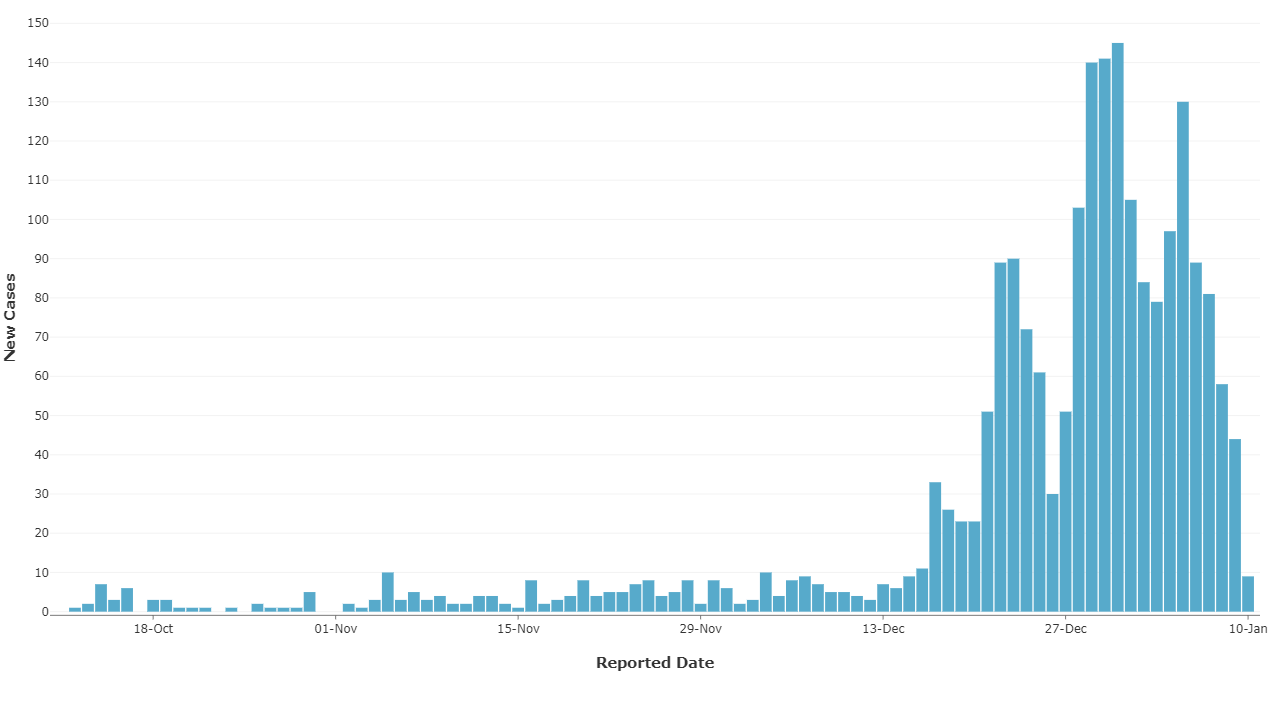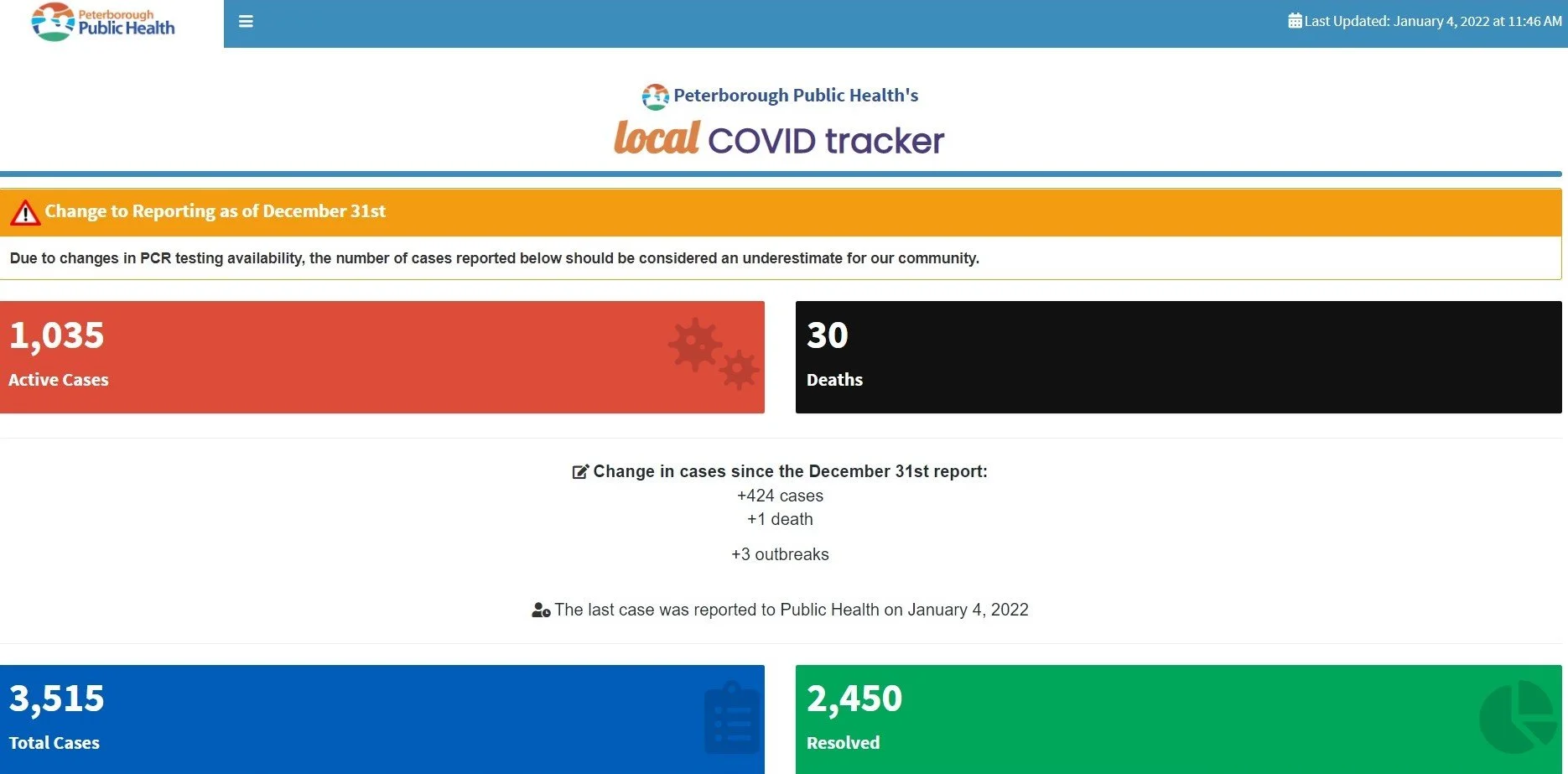One COVID-19 Death, Five Hospitalizations and Three Outbreaks For January 10, 2022
/One new death, five hospitalizations, three outbreaks with 1,159 active cases have been reported by Peterborough Public Health on Monday.
The three outbreaks occurred at Sherbrooke Heights Retirement Residence, Congregate Living Facility #12 and Peterborough Regional Health Centre on consecutive days starting on Saturday respectively.
Nine cases were reported on Monday along with 102 that were reported over the weekend (58 on Saturday and 44 on Sunday).
There are 125 total hospitalizations and 22 total ICU admissions to date in Peterborough.
New COVID-19 cases by date. Photo courtesy of Peterborough Public Health.
















